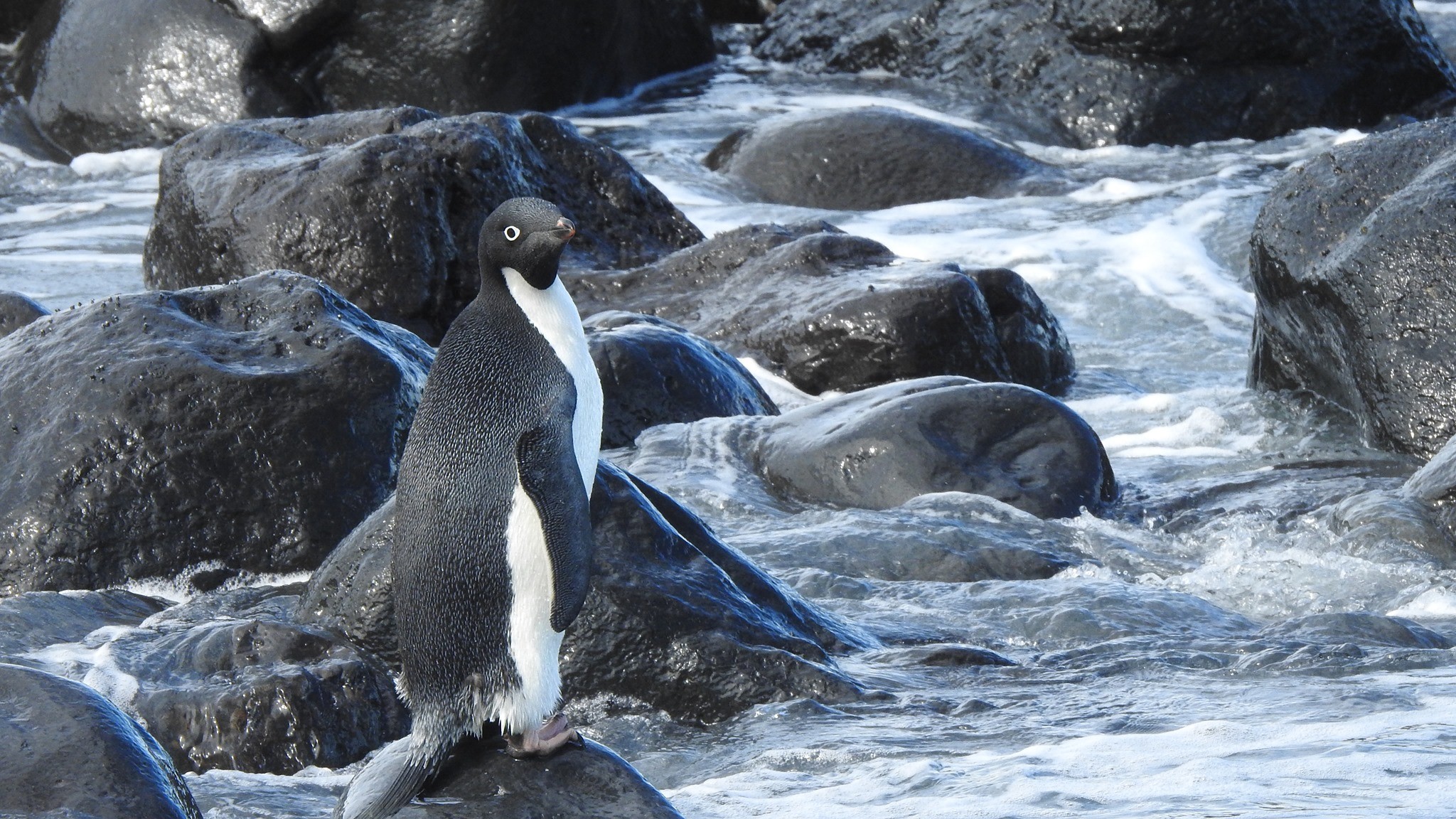Lost' Adélie penguin wanders nearly 2,000 miles off-course, ends up on New Zealand beach
"Pingu" the penguin was discovered at Birdling Flat in New Zealand

An Adélie penguin that washed up on a rocky New Zealand beach — nearly 2,000 miles (3,218 kilometers) from its home in Antarctica — last week, has been released back into the wild, experts say.
Nicknamed "Pingu" by locals, after the claymation children's cartoon, the disoriented bird was found waddling around the beach at Birdling Flat on Nov. 10 and was swiftly taken to the Christchurch Penguin Rehabilitation for treatment, according to NBC News. New Zealand's Kaikoura Wildlife Hospital indicated in a Facebook post that Pingu was "underweight and dehydrated," but that the young penguin, which rehabbers determined to be between 1 and 2 years old, was recovering strength on a diet of "fluids and fish smoothies."
The next day, the little bird made its way safely back into the water with a bellyful of fish for the long trip home, the New Zealand Department of Conservation said.
Related: Photos of flightless birds: all 18 penguin species
Pingu is only the third individual of its species ever spotted in New Zealand. The first was a dead specimen that washed ashore in 1962, CBS News reported. The second, a live penguin, landed in the Kaikoura region in 1993, according to New Zealand Birds Online.
Adélie penguins are one of five penguin species that live exclusively in Antarctica and its surrounding islands. They typically stand around 27.5 inches (about 70 centimeters) tall and weigh between 8.5 and 12 pounds (3.8 and 5.4 kilograms). Like other penguins, they live on a diet of fish, squid and krill, and they have been known to travel up to 185 miles (297.7 km) — not 2,000 miles — to secure a meal, according to World Atlas.
Scientists aren't sure exactly why Pingu traveled all the way to New Zealand. But they think that food supply and climate change may have played a role. Penguins sometimes stray off course "when the waters warm up because the fish usually go into deeper, cold waters. And so there's no fish around," Thomas Stracke of Christchurch Penguin Rehabilitation, who helped bring in Pingu, told The Guardian.
Sign up for the Live Science daily newsletter now
Get the world’s most fascinating discoveries delivered straight to your inbox.
Aside from making fish scarce, increased temperatures can wreak havoc on the sea ice that Antarctic penguins need to raise their young. Research from NASA and the University of Delaware, published in 2016 in the journal Scientific Reports, indicates that under current climate change trends, 60% of Adelie penguin populations may be in serious decline by the end of the century.
"All species of penguin are like marine sentinels," Philip Seddon, a zoologist at Otago University in New Zealand, told The Guardian. "When they're doing badly, they're giving us an early signal — canaries in coalmines — an early signal that things are not good."
Originally published on Live Science.

Joanna Thompson is a science journalist and runner based in New York. She holds a B.S. in Zoology and a B.A. in Creative Writing from North Carolina State University, as well as a Master's in Science Journalism from NYU's Science, Health and Environmental Reporting Program. Find more of her work in Scientific American, The Daily Beast, Atlas Obscura or Audubon Magazine.









